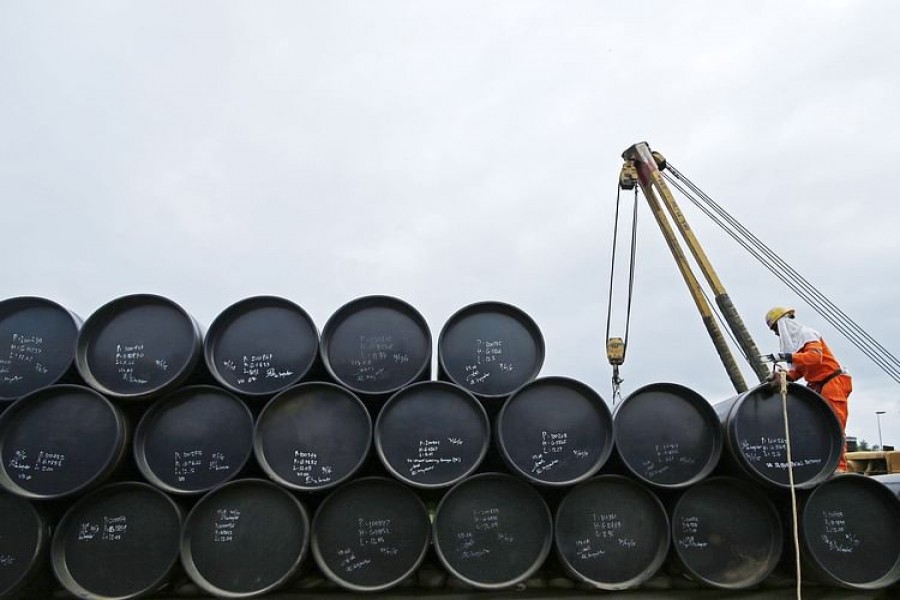
Published :
Updated :

Prime Minister Sheikh Hasina on Tuesday last asked the authorities concerned to explore the possibility of importing fuel oils from Russia, a global superpower facing sanctions from another---the USA---following the former's invasion of Ukraine.
While presiding over the regular weekly meeting of the executive committee of the national economic council (ECNEC), she reportedly said, "If India and other countries can import oil from Russia, why not Bangladesh?"
Russia is now selling petroleum products at a substantial discount. Neighbouring India following the outbreak of the Russia-Ukraine war has been importing Russian crude and exporting a part of the same at higher prices to some other countries after refining. The USA lately has softened its tough stance on Russian oil and gas export and, for strategic reasons, might be overlooking India's approach to sanctions.
But the PM's directive has given rise to some amount of confusion. The country's sole oil refinery, the Eastern Refinery Limited (ERL), is not equipped to refine heavy Russian crude oil. The ERL, established in 1968, is now able to refine only light crude. Foreign secretary Masud Bin Momen while talking to the newsmen on Wednesday last, also confirmed the ERL's lack of capacity to refine Russian crude. It would take a long time to equip the ERL with such facilities, he admitted.
Then, will Bangladesh import refined Russian petroleum products, mainly diesel? Details are not yet available, but finished petroleum products would be the most likely imports. Nearly 80 per cent of the diesel and octane it imports every year are refined. The ERL can refine only 1.5 million tonnes a year.
At least two companies, including a Russian one, have reportedly approached Bangladesh to sell Russian diesel and gas. But the government is interested in purchasing oil directly from Russia through currency swaps.
Some people might seek to know why successive governments have failed to modernise the ERL and expand its capacity or establish a new one with greater refining capacity. The consumption of petroleum products has risen exponentially in an economy that swelled to over US$400 billion in 2021 from US$6.29 billion in 1972.
According to an estimate, the country could have saved $250 million annually through lower imports and also could have earned a profit in foreign exchange had it installed a high-capacity refinery with modern equipment.
Not that there has not been any initiative to install a bigger refinery. A project to this effect was prepared nearly 12 years back at a cost of Tk 130 billion and then the ministry concerned sat on it. Only recently, has it come out of deep slumber and hiked the cost of the project to Tk 200 billion. The project seeks an allocation of Tk 420 million for foreign trips and training by officials and experts concerned.
What would sound more interesting is the huge spending the government has been making on an Indian project-management consultant for the proposed refinery. Three years have already gone by and the agency has extended the consultant's contract for another four years. The consultancy cost, reportedly, has more than doubled to Tk 2.56 billion.
Inaction by the government to install an oil refinery with adequate capacity to refine both heavy and light crude, thus, is taking a toll on the economy. Taking advantage of the current situation, a section of people in the relevant agencies is now pushing the refinery project with questionable components. The Planning Commission while evaluating the project has raised a few questions. What happens next, however, remains to be seen.


 For all latest news, follow The Financial Express Google News channel.
For all latest news, follow The Financial Express Google News channel.